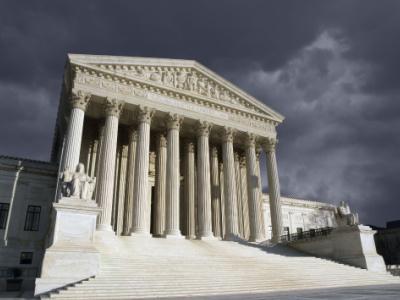Supreme Court Ruling May Require Innocent People to Stay in Prison
 Over the past few years, the United States Supreme Court has issued a number of controversial decisions. Its rulings on issues such as abortion, affirmative action, and student loan forgiveness have been discussed and debated by many. However, the court has made some other significant rulings that have received less attention, including in one case that addressed whether people who have been convicted of federal crimes can seek relief and demonstrate their innocence. This ruling is likely to affect many criminal cases, and federal prisoners may need to work with an attorney to determine how they may be able to proceed as they fight against wrongful convictions or unjust sentences.
Over the past few years, the United States Supreme Court has issued a number of controversial decisions. Its rulings on issues such as abortion, affirmative action, and student loan forgiveness have been discussed and debated by many. However, the court has made some other significant rulings that have received less attention, including in one case that addressed whether people who have been convicted of federal crimes can seek relief and demonstrate their innocence. This ruling is likely to affect many criminal cases, and federal prisoners may need to work with an attorney to determine how they may be able to proceed as they fight against wrongful convictions or unjust sentences.
Jones v. Hendrix and Habeas Corpus Petitions
In the case of Jones v. Hendrix, the Supreme Court reviewed a case in which a man had been sentenced to 27 years in prison for violating federal laws prohibiting convicted felons from possessing firearms. In 2019, the Supreme Court ruled that in these cases, prosecutors must prove that a defendant knew that they were illegally in possession of a firearm. Since prosecutors had not established that fact in this case, the defendant should have been able to challenge his conviction.
When a person wishes to challenge a conviction by showing that they were innocent of the crimes for which they were convicted, they will typically do so by filing a petition for a writ of habeas corpus. However, the Antiterrorism and Effective Death Penalty Act (AEDPA), which was passed by Congress in 1996, places restrictions on prisoners’ ability to petition for habeas corpus a second or subsequent time. The defendant in Jones v. Hendrix had previously sought a writ of habeas corpus and been denied, so even though he could show that he was legally considered to be innocent based on the current laws, he was unable to seek relief.
When reviewing this case, the Supreme Court had the opportunity to grant relief to prisoners who could demonstrate that they were innocent. However, it did the opposite, deciding that prisoners effectively have one chance to challenge a conviction. If they have already attempted to do so, they cannot file a subsequent habeas corpus petition, even if they can prove that they are innocent.
Justice Clarence Thomas, who wrote the majority opinion in Jones v. Hendrix, stated that the finality of the decisions made by the justice system is more important than correcting errors that had been made in criminal cases. That is, it is preferable for criminal cases to have final rulings that provide closure to the victims of crime and prevent legal matters from being dragged out, even if this finality results in innocent people being imprisoned. In essence, the court has decided to prioritize the efficiency of the justice system over the lives of people who have been treated unfairly and unjustly.
The court’s decision has already had negative effects on prisoners who have attempted to overturn wrongful convictions or reduce sentences. Defense attorneys and criminal justice advocates have highlighted several cases in which defendants were seeking to reduce their sentences based on changes in the law that have occurred since they were convicted. However, in many cases, prisoners’ ability to seek relief is no longer available because they had filed petitions for habeas corpus in the past.
Contact Our Connecticut Federal Crimes Defense Lawyer
Because of the Supreme Court’s rulings, people who are facing criminal charges in federal courts or those who have been convicted of federal crimes may face significant challenges. To successfully defend against these charges or seek post-conviction relief, it is more crucial than ever for these defendants to work with a lawyer who understands the applicable laws and the procedures followed in federal courts. At Woolf & Ross Law Firm, LLC, our Hartford federal criminal defense attorney can provide strong, effective representation in these cases, helping defendants protect their rights and ensure that they are treated fairly. Contact us today at 860-290-8690 to set up a free consultation.
Sources:
https://www.pbs.org/newshour/show/supreme-court-decision-limits-how-prisoners-can-challenge-their-convictions
https://theappeal.org/supreme-court-jones-v-hendrix-hurting-innocent-people/
https://www.scotusblog.com/2023/06/court-blocks-pathway-for-federal-prisoners-to-raise-legal-innocence-claims/






